Warren Gross
Faster Inference of Integer SWIN Transformer by Removing the GELU Activation
Feb 02, 2024Abstract:SWIN transformer is a prominent vision transformer model that has state-of-the-art accuracy in image classification tasks. Despite this success, its unique architecture causes slower inference compared with similar deep neural networks. Integer quantization of the model is one of the methods used to improve its inference latency. However, state-of-the-art has not been able to fully quantize the model. In this work, we improve upon the inference latency of the state-of-the-art methods by removing the floating-point operations, which are associated with the GELU activation in Swin Transformer. While previous work proposed to replace the non-integer operations with linear approximation functions, we propose to replace GELU with ReLU activation. The advantage of ReLU over previous methods is its low memory and computation complexity. We use iterative knowledge distillation to compensate for the lost accuracy due to replacing GELU with ReLU. We quantize our GELU-less SWIN transformer and show that on an RTX 4090 NVIDIA GPU we can improve the inference latency of the quantized SWIN transformer by at least $11\%$ while maintaining an accuracy drop of under $0.5\%$ on the ImageNet evaluation dataset.
AdCorDA: Classifier Refinement via Adversarial Correction and Domain Adaptation
Jan 24, 2024Abstract:This paper describes a simple yet effective technique for refining a pretrained classifier network. The proposed AdCorDA method is based on modification of the training set and making use of the duality between network weights and layer inputs. We call this input space training. The method consists of two stages - adversarial correction followed by domain adaptation. Adversarial correction uses adversarial attacks to correct incorrect training-set classifications. The incorrectly classified samples of the training set are removed and replaced with the adversarially corrected samples to form a new training set, and then, in the second stage, domain adaptation is performed back to the original training set. Extensive experimental validations show significant accuracy boosts of over 5% on the CIFAR-100 dataset. The technique can be straightforwardly applied to refinement of weight-quantized neural networks, where experiments show substantial enhancement in performance over the baseline. The adversarial correction technique also results in enhanced robustness to adversarial attacks.
Robustness to distribution shifts of compressed networks for edge devices
Jan 22, 2024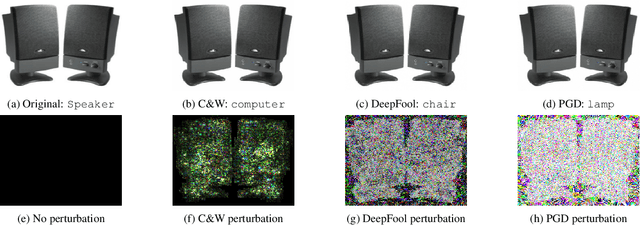
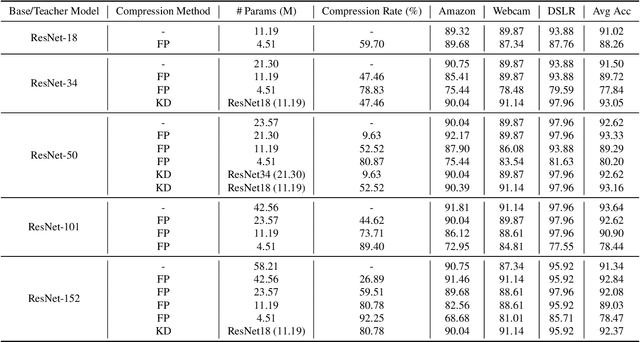
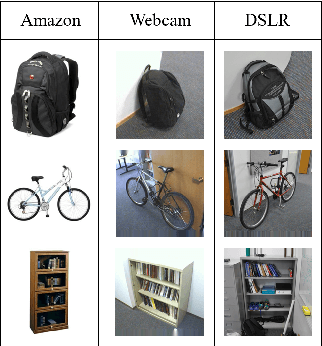
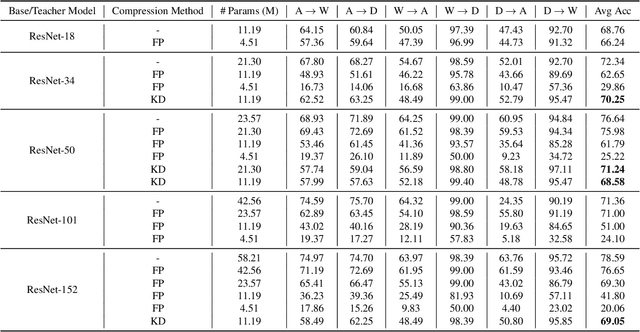
Abstract:It is necessary to develop efficient DNNs deployed on edge devices with limited computation resources. However, the compressed networks often execute new tasks in the target domain, which is different from the source domain where the original network is trained. It is important to investigate the robustness of compressed networks in two types of data distribution shifts: domain shifts and adversarial perturbations. In this study, we discover that compressed models are less robust to distribution shifts than their original networks. Interestingly, larger networks are more vulnerable to losing robustness than smaller ones, even when they are compressed to a similar size as the smaller networks. Furthermore, compact networks obtained by knowledge distillation are much more robust to distribution shifts than pruned networks. Finally, post-training quantization is a reliable method for achieving significant robustness to distribution shifts, and it outperforms both pruned and distilled models in terms of robustness.
CES-KD: Curriculum-based Expert Selection for Guided Knowledge Distillation
Sep 15, 2022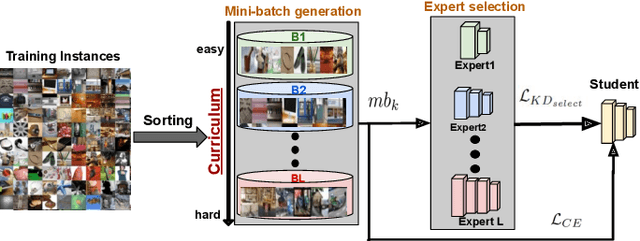
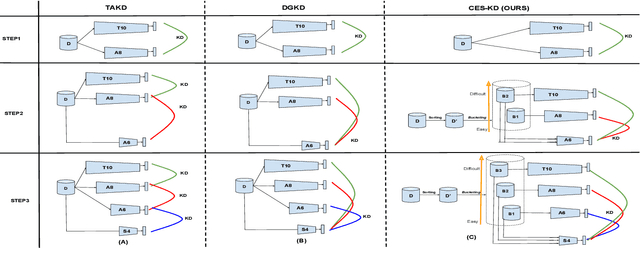
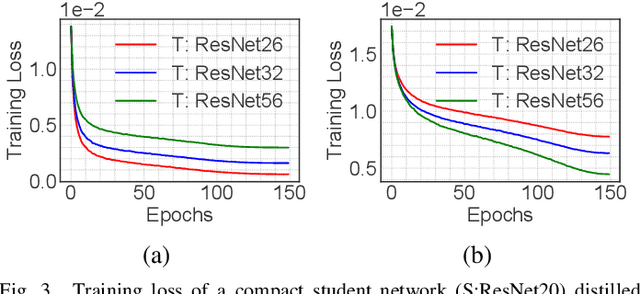
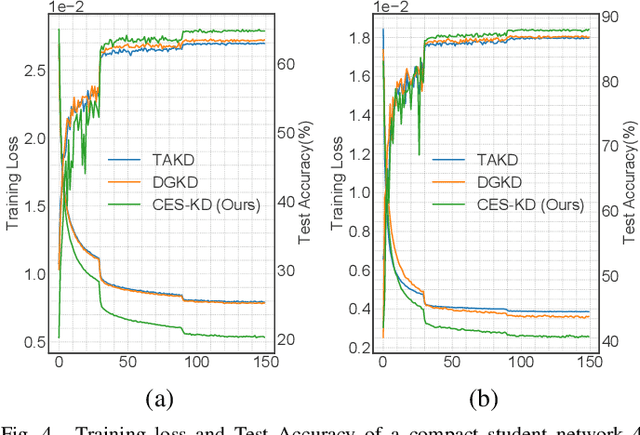
Abstract:Knowledge distillation (KD) is an effective tool for compressing deep classification models for edge devices. However, the performance of KD is affected by the large capacity gap between the teacher and student networks. Recent methods have resorted to a multiple teacher assistant (TA) setting for KD, which sequentially decreases the size of the teacher model to relatively bridge the size gap between these models. This paper proposes a new technique called Curriculum Expert Selection for Knowledge Distillation (CES-KD) to efficiently enhance the learning of a compact student under the capacity gap problem. This technique is built upon the hypothesis that a student network should be guided gradually using stratified teaching curriculum as it learns easy (hard) data samples better and faster from a lower (higher) capacity teacher network. Specifically, our method is a gradual TA-based KD technique that selects a single teacher per input image based on a curriculum driven by the difficulty in classifying the image. In this work, we empirically verify our hypothesis and rigorously experiment with CIFAR-10, CIFAR-100, CINIC-10, and ImageNet datasets and show improved accuracy on VGG-like models, ResNets, and WideResNets architectures.
Decoding Polar Codes with Reinforcement Learning
Sep 15, 2020



Abstract:In this paper we address the problem of selecting factor-graph permutations of polar codes under belief propagation (BP) decoding to significantly improve the error-correction performance of the code. In particular, we formalize the factor-graph permutation selection as the multi-armed bandit problem in reinforcement learning and propose a decoder that acts like an online-learning agent that learns to select the good factor-graph permutations during the course of decoding. We use state-of-the-art algorithms for the multi-armed bandit problem and show that for a 5G polar codes of length 128 with 64 information bits, the proposed decoder has an error-correction performance gain of around 0.125 dB at the target frame error rate of 10^{-4}, when compared to the approach that randomly selects the factor-graph permutations.
 Add to Chrome
Add to Chrome Add to Firefox
Add to Firefox Add to Edge
Add to Edge